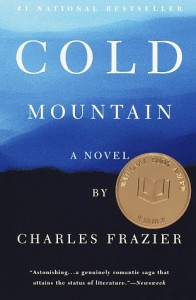The Dilemma of the 21st Century Writer
I had big plans for this blog entry. BIG plans.
When I originally envisaged this piece, it was going to be a 5,000-word polemic on the difficulties of being a writer in the internet age. I was going to sketch a detailed contrast between what was involved in being a writer 80 to 100 years ago and what is involved today. I was going to describe, and give examples of, all of the internet text mediums in use today, their individual strengths and weaknesses, the audience’s insatiable appetite for more and more content, and the addiction of writers to instant feedback, instant validation, instant gratification.
 I was going to do all of that. But since what I wanted to say was pretty simple, I figured, why bother? Just make your point and be done with it.
I was going to do all of that. But since what I wanted to say was pretty simple, I figured, why bother? Just make your point and be done with it.
To illustrate my point, I imagined satirical scenarios wherein famous writers from the past were forced to use today’s internet communication mediums, and I was going to write parodies of them working in those mediums:
- Flaubert “conversing” with Maupassant on AIM about Maupassant’s latest story.
- Chekhov updating his Facebook page to answer the latest “25 Random Things” or “Memories from High School” note that his favored actress, Muse and girlfriend Olga Knipper “tagged” him with.
- Hemingway adding to his Twitter (“Got tight on absinthe last night. Did knife tricks.”) and fretting about the fact that he has fewer than 500 followers when a cat has over 100,000.
 I was going to add quotes from my fellow bloggers about how they sometimes feel overwhelmed “maintaining” these monsters they’ve created. I was going to discuss how, when done in moderation, I have found blogging, and especially Twittering, to be great for developing my improvisation skills—the literary equivalent of jazz. And finally, I was going to compare the strengths of 21st century communication—connecting writers with an audience, building a following or “platform,” and promoting a writer’s work—with the primary value of more traditional writing and publishing (non-instant), which is the slow and steady improvement of craft.
I was going to add quotes from my fellow bloggers about how they sometimes feel overwhelmed “maintaining” these monsters they’ve created. I was going to discuss how, when done in moderation, I have found blogging, and especially Twittering, to be great for developing my improvisation skills—the literary equivalent of jazz. And finally, I was going to compare the strengths of 21st century communication—connecting writers with an audience, building a following or “platform,” and promoting a writer’s work—with the primary value of more traditional writing and publishing (non-instant), which is the slow and steady improvement of craft.
Again, I was going to write about all of those things, but I wanted to keep it simple. So here it is:
The number one challenge facing writers today is balancing building and maintaining a following with continually improving their craft.
It comes down to Craft vs. Promotion, plain and simple:
- CRAFT: To develop one’s craft requires (for most of us) quiet, study, focus, and detachment from the vicissitudes of the marketplace. This is difficult to do in blogs and other Internet mediums like Twitter because the element of instant-gratification and instant feedback can too easily sway us to write what we may think our audience wants to hear, or to feel as though a piece of writing is “good enough” because, hell, “it’s just going on my blog.”
- PROMOTION: To promote oneself requires being plugged into the cybersphere, making contacts, replying to comments, giving feedback, reading opinions, following others’ blogs and Twitters and projects and engaging in meaningful conversation about all of them. However, just as it’s more difficult for writers to develop their craft in the online sphere, they also can’t promote themselves and their work in a vacuum.
The trick is finding a balance.

Recently, I started writing new book. The genre or subject doesn’t matter, but what does is this: Writing any book length manuscript requires focus over the long haul (weeks, months, or years—Charles Frazier’s Cold Mountain comes to mind) and a reliance on CRAFT, and if the writer finds herself continually forced to put out the fires of PROMOTION, she is going to be a very long time finishing the book—if ever.
The conclusion I’ve come to is that if you’re going to err one way or the other—towards craft or promotion—you’re better off leaning towards craft, every time. The tools and technologies we use in the promotion side of things change so quickly that any investment you make in them in could go away overnight. Sure, you might have built up a sizable audience for your blog, and if that’s the case, great. But more important than the size of the audience is the idea that when they come to your site, you have something to say, and the kind of deep reflection that produces good writing usually only comes with attention to craft. One of my favorite quotes about writing, by F. Scott Fitzgerald, and which I use at the bottom of my email signature, speaks directly to this point:
“You don’t write because you want to say something. You write because you have something to say.”
This brings up another drawback to the internet mediums, which is that we often don’t figure out what we want to say without a long period of germination and revision. Truly, ideas are seeds that require water, light and time to grow. They can’t be rushed, which is exactly what the internet mediums often do to our ideas—they rush them.
We feel rushed as bloggers and Twitterers because we’re trying to be receptive to, and giving to, our audience. And in the worst case scenarios, we’re second-guessing our audience. This, said the great teacher of screenwriting and author of STORY, Robert McKee, is the definition of a hack.
When we focus on our audience, we lose the Muse. The Muse says, “You don’t want to listen to me? Fine! I’ll find somebody who does.” But when we listen to our Muse, no amount of ups and downs in our audience will take away from our improved craft. Better writing is better writing anywhere you go, in any medium. But conversely, if you have little craft, or nothing to say, it doesn’t matter how big your audience is.
New technologies, new internet communication mediums, will come and go, but this dilemma isn’t going anywhere. It will only become harder to achieve balance, and ultimately each writer will have to find that balance—his comfort level—for himself.
Remember when I said I wasn’t going to have quotes from fellow bloggers? Well, I lied. Twisted Princess, a friend and fellow blogger, defines her comfort level this way:
“I need the blog, okay? I love the instant feedback. I’m addicted to it. But Twitter? Forget about it. Twitter and I are only ever going to have a casual relationship. Nothing but booty calls.”
Comments (2)